“The Humanities in Promoting Health for All”-Beijing Forum Sub-Forum and the 3rd Peking University International Conference on Medical Human
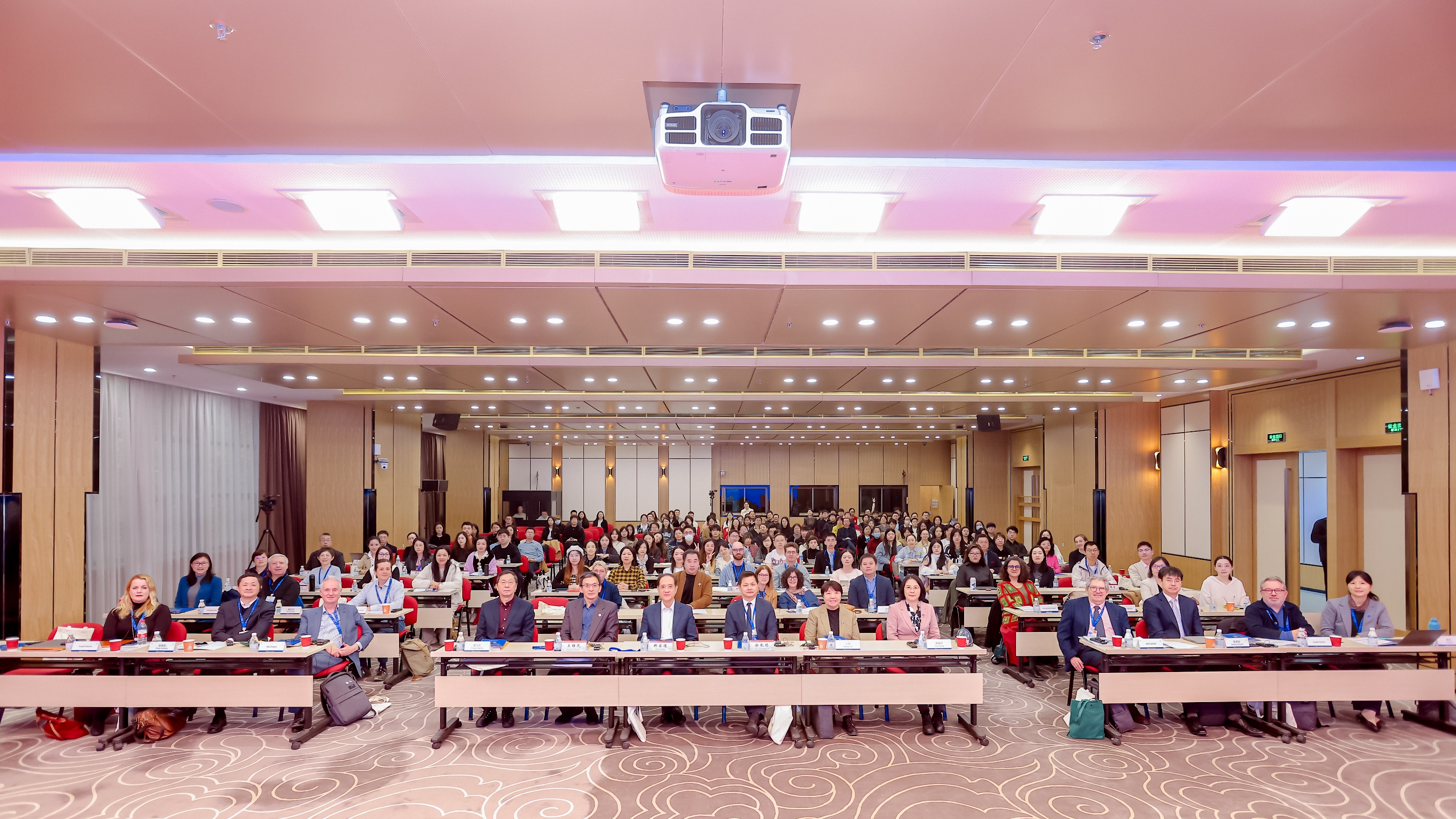
From November 1 to 3, 2024, the 21st Beijing Forum was held grandly in Beijing. With the theme of “Harmony of Civilizations and Common Prosperity—Innovation in the Age of Humanity Development,” this year’s forum included 13 sub-forums, 2 special forums, and 3 overseas forums. Among these, “The Humanities in Promoting Health for All” sub-forum and the 3rd Peking University International Conference on Medical Humanities were organized by Peking University’s School of Health Humanities. This event aimed to bring together insights from medical humanities scholars from around the world, share theoretical and practical achievements across related fields, foster cross-cultural dialogue from a global perspective, and explore the essence and value of medicine while envisioning its future development to contribute wisdom and strength to improving public health.
The event featured a main venue and three breakout sessions, where over 50 renowned experts and young scholars from North America, Europe, Africa, and Asia presented academic reports. The forum attracted over 200 representatives from more than 50 universities and research institutions nationwide, who participated as observers to witness this academic feast.
Han Qide, Academician of the Chinese Academy of Sciences and Honorary President of the China Association for Science and Technology, Xu Changshun, Deputy Director-General of the Beijing Municipal Health Commission, and Wang Weimin, Vice President of Peking University Health Science Center attended the opening ceremony and delivered speeches, with Dean Guo Liping of Peking University’s School of Health Humanities presiding.
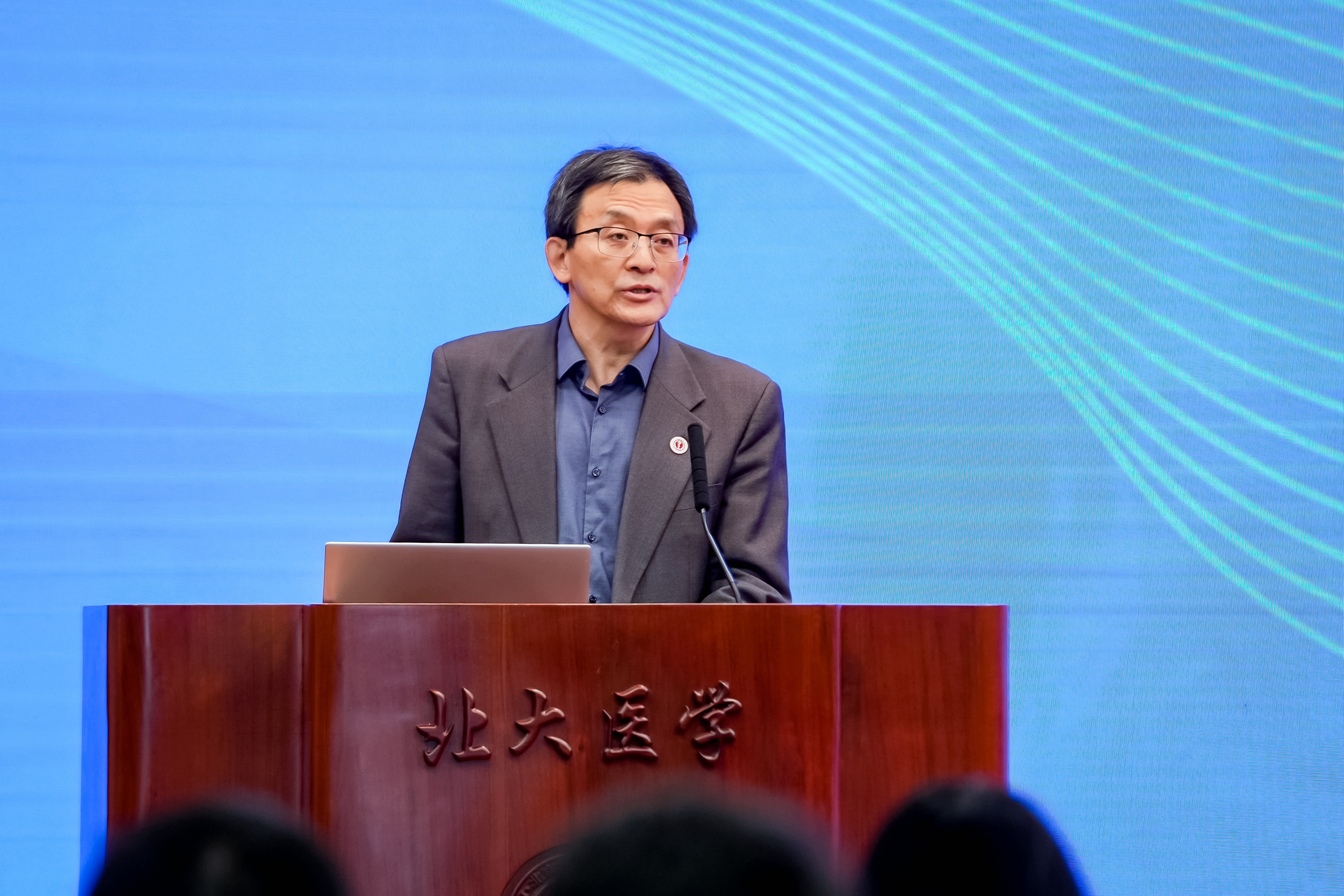
Wang Weimin highlighted that amid ongoing breakthroughs in medical technology, it is crucial to integrate more humanistic care into medical education. This integration aims to cultivate high-level medical talents equipped with solid professional knowledge and rich humanistic qualities, enhancing public health and supporting the achievement of high standards of health for all. Peking University’s medical education upholds the spirit of “kindness and integrity,” steadily advancing reforms in the medical humanities education system while promoting the collaborative development of medicine, education, and research. Wang shared four reflections on medical humanities education: (1) High-level knowledge of medical humanities is essential to support and guarantee fourth-generation medical education in the context of the new technological revolution; (2) Medical humanities and clinical medicine are not isolated domains but form an organic whole that supports and promotes each other; (3) Fostering medical humanities should emphasize the role of implicit curricula; (4) The newly established Department of Clinical Medical Humanities at Peking University has significant value in integrating medical humanities with clinical practice.
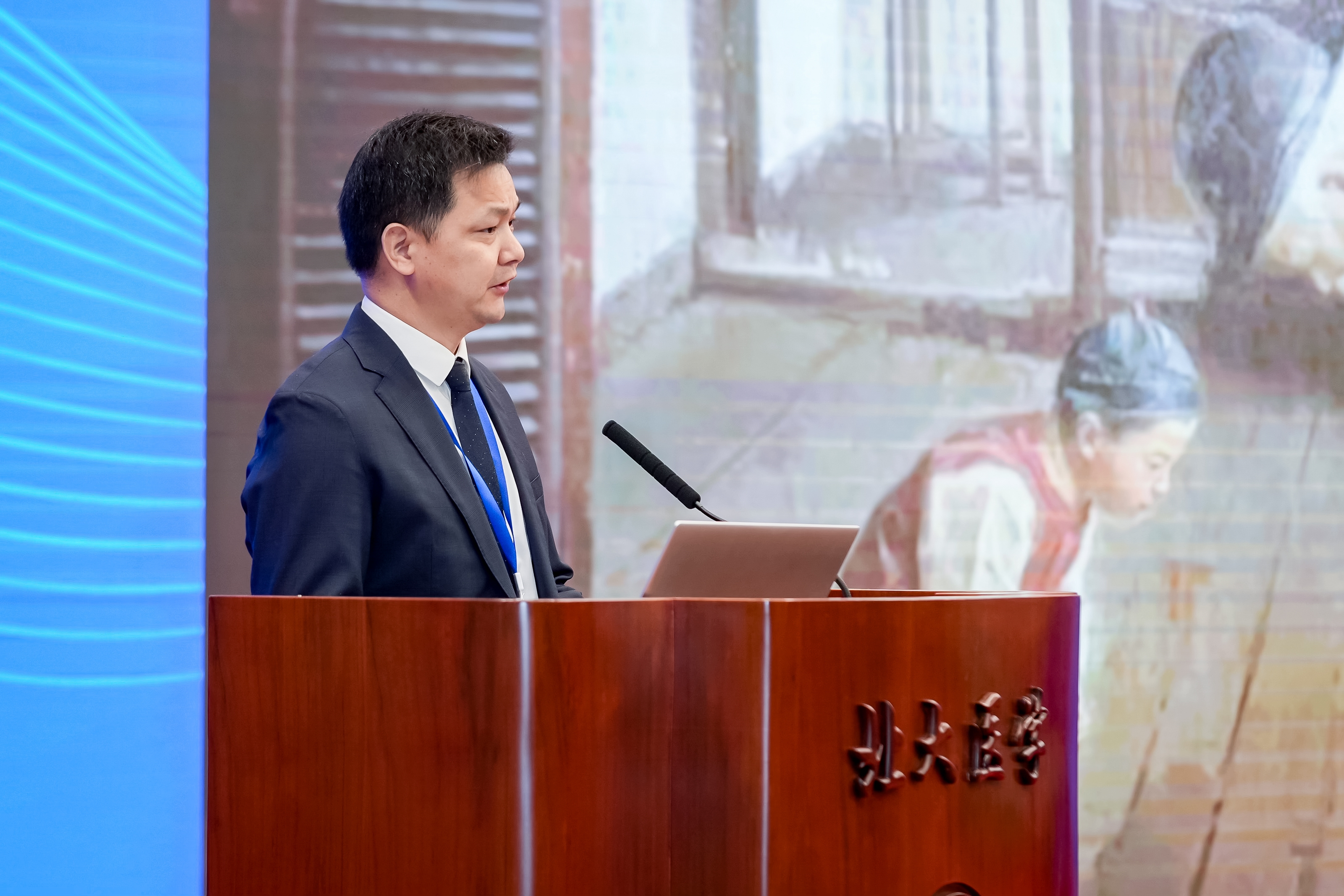
Xu Changshun pointed out that both technology and humanities bear the mission of medicine. The rapid development of medical technology cannot compensate for a lack of medical humanistic spirit. He highlighted three inseparable aspects of returning to the humanistic spirit in medicine: the ideological foundation of the humanistic spirit in medicine is inseparable from the deep soil of human civilization—in China in particular from the nourishment of traditional Chinese culture; the practical application of the humanistic spirit in medicine relies on narrative medicine as an effective tool; and its effective implementation depends on a team of doctors who “seek knowledge and virtue.” He noted that with China’s aging population deepening and chronic disease management becoming the norm, there is an even greater need for the application of narrative medicine and the return to a humanistic spirit in medicine. The integration and mutual advancement of medical humanistic spirit and medical technology bridge the gap between medical science and humanities in clinical practice.
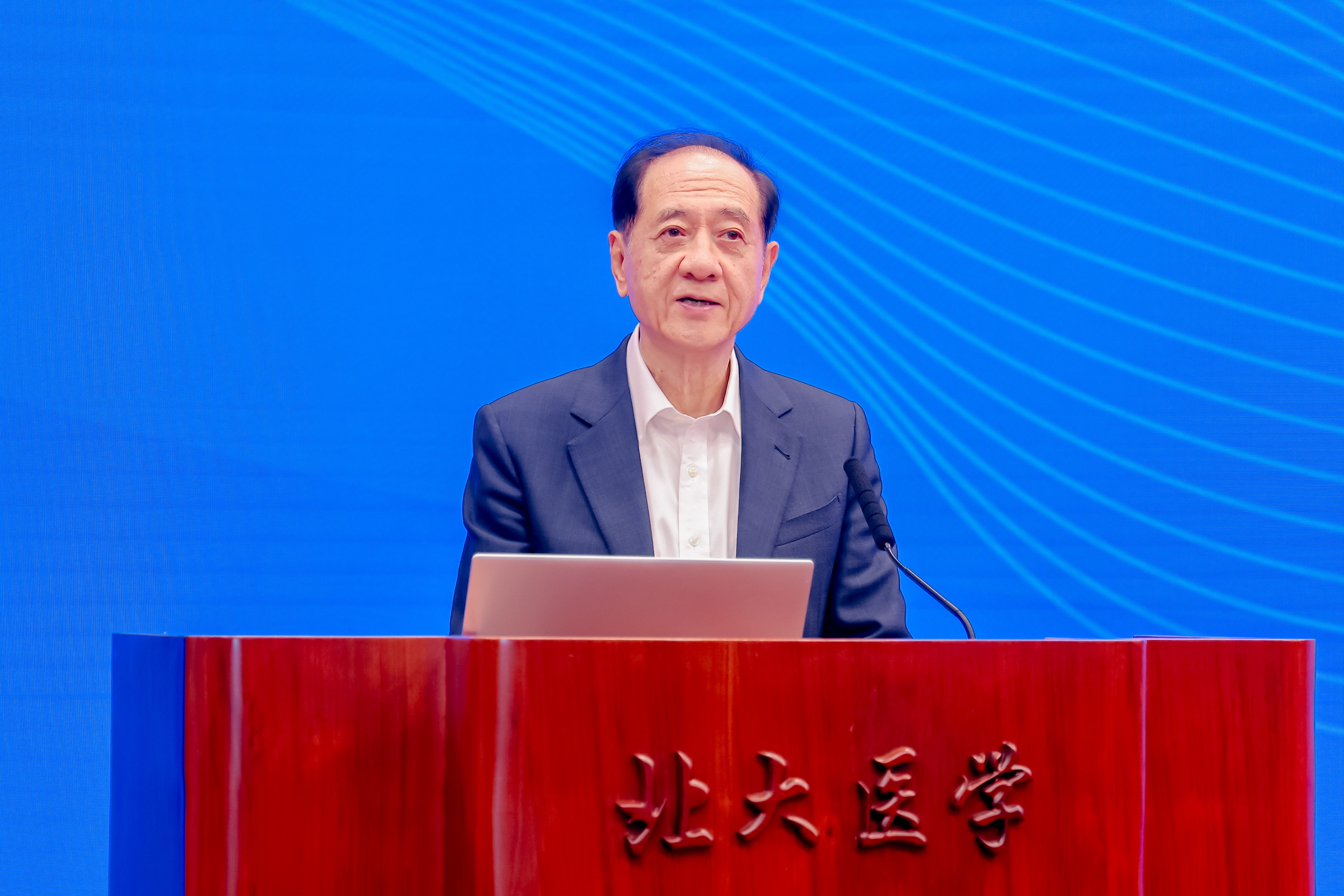
Han Qide emphasized that this joint holding of the Peking University International Conference on Medical Humanities and the Beijing Forum sub-forum underscores the significance of the theme of medical humanities in national health. He stressed that health is a fundamental human right and the foundation of a nation and society. Universal health coverage ensures that everyone can obtain the necessary comprehensive, lifelong health services through a quality healthcare system, which he described as the best expression of “medical humanities.” Since the turn of the 21st century, China has established the world’s largest healthcare system, continuously improving public health and physical fitness levels. However, in recent years, achieving universal health coverage globally faces challenges such as changing disease patterns and an aging population. Han presented three expectations for the forum: (1) “People-Centered Approach, Building Shared Ideas”: holding high the banner of humanism to illuminate the path to health; (2) “Grounded in Practice, Sharing Experience”: strengthening humanistic actions to uphold the essence of medicine; (3) “Fostering Dialogue and Deep Exchange”: pooling wisdom from multiple sources to promote health for all.
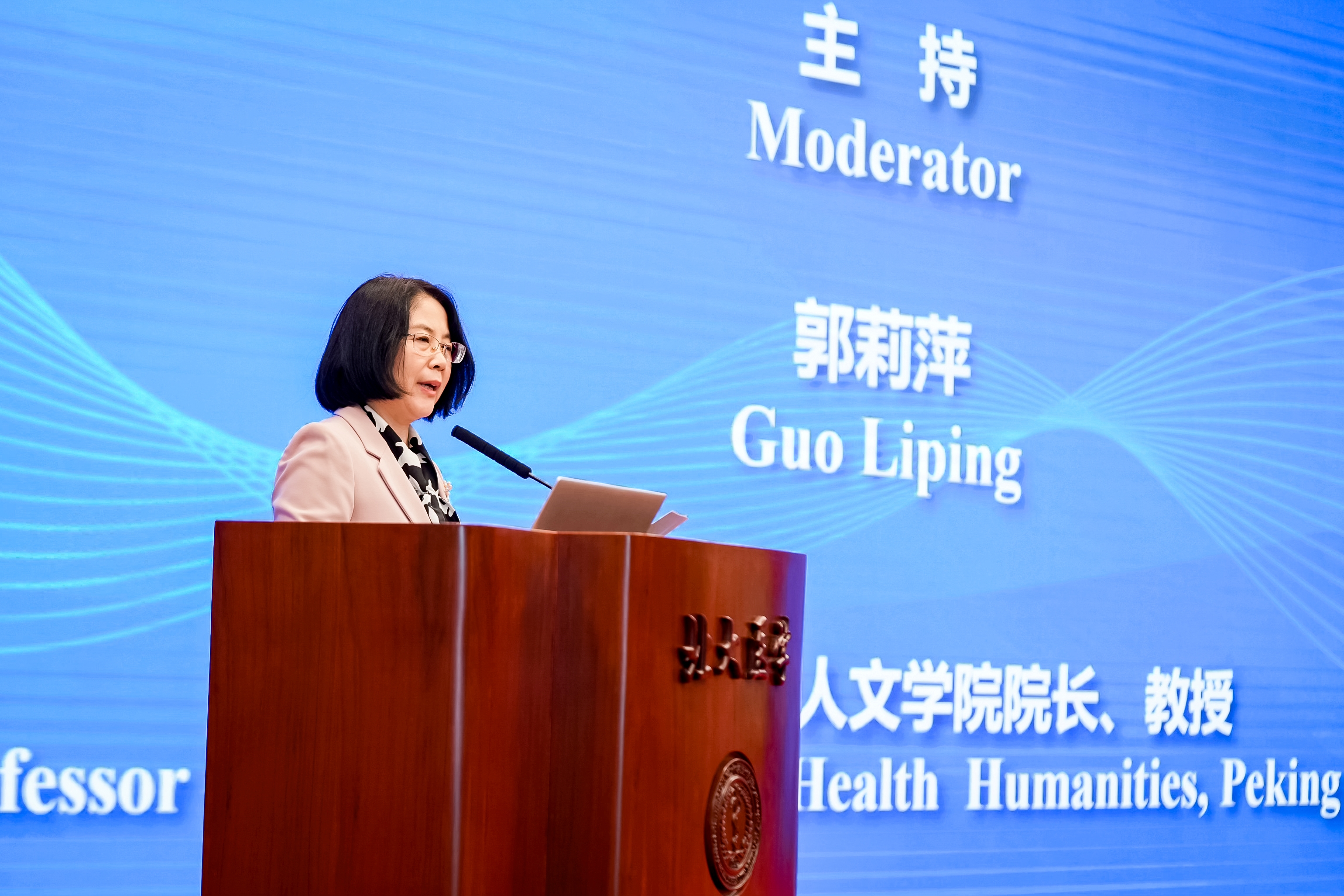
The first half of Session 1 was moderated by Professor Guo Liping, Dean of the Peking University (PKU) School of Health Humanities.
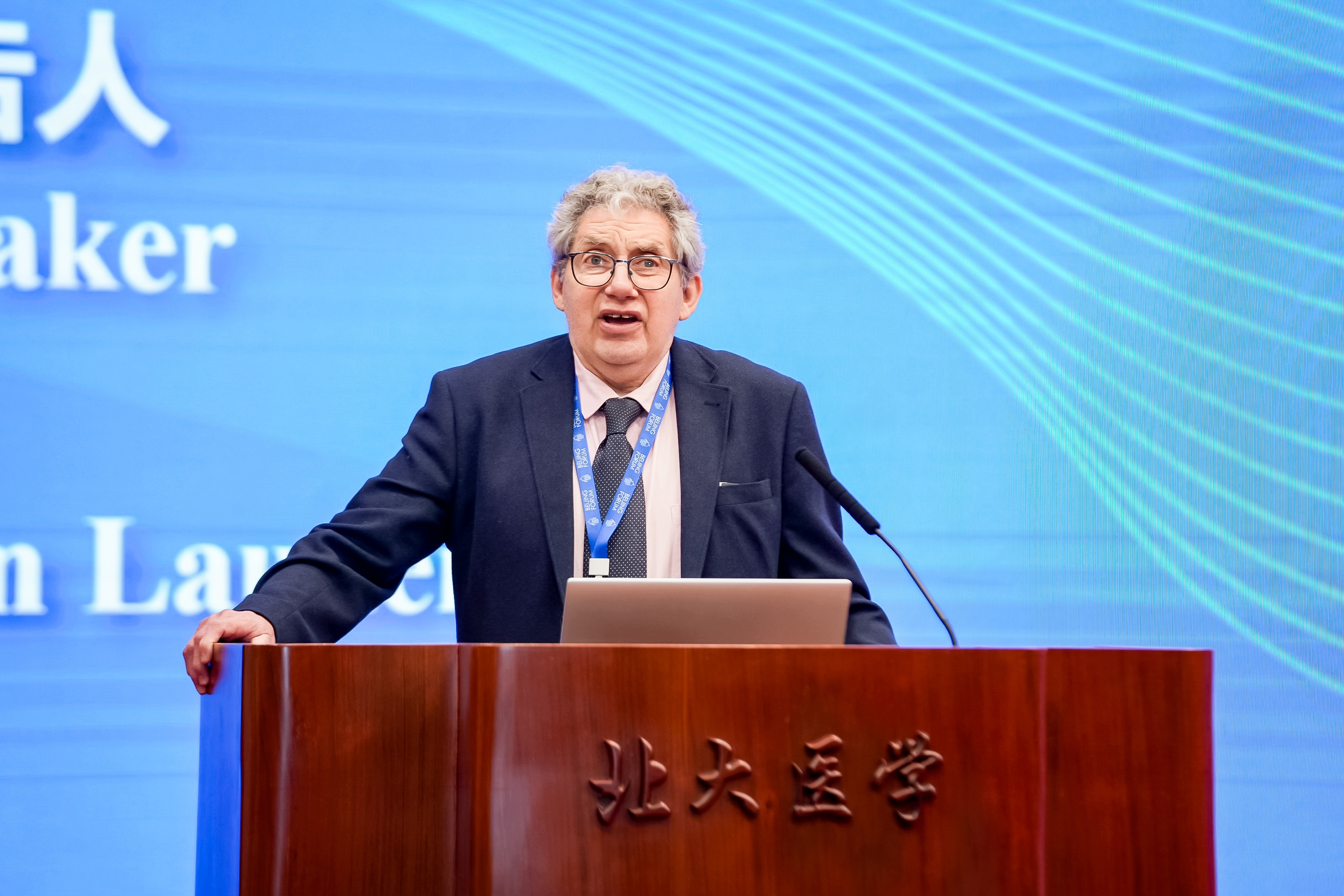
Professor John Launer from University College London delivered a presentation titled “Narrative-Based Medical Practice”. As one of the founders of the “Conversations Inviting Change” (CIC) approach, Professor Launer explained how narrative medicine can assist healthcare professionals in better understanding patients' needs and concerns. He emphasized that the core of this approach lies in listening to patients' stories, actively responding, and taking appropriate action to improve the well-being of patients and their families. His insightful presentation illustrated the extensive applications of narrative medicine in clinical practice and training of communication skills. He also introduced the CIC training programs implemented in several countries.
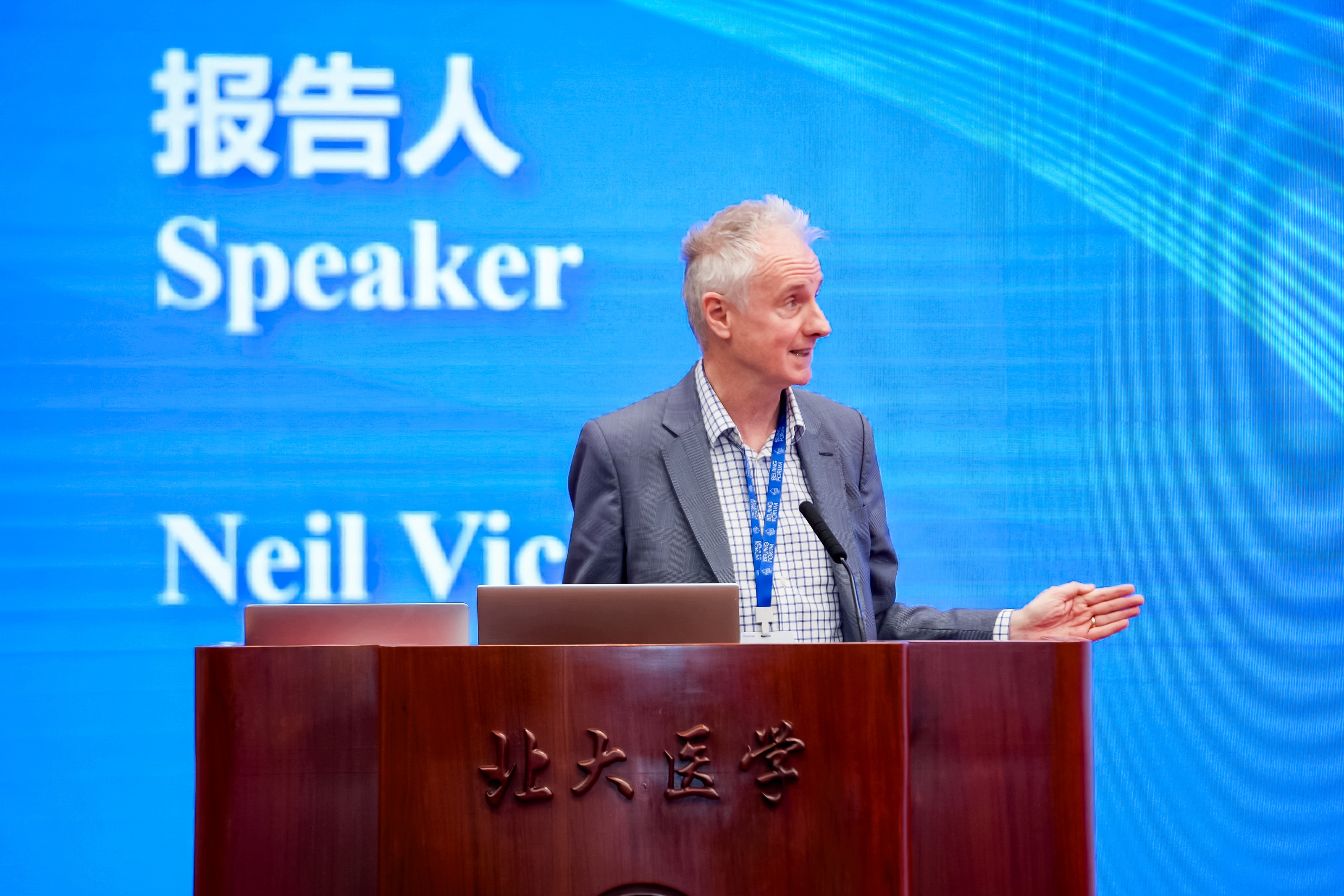
Professor Neil Vickers from King's College London presented on “Narrative and the Social Determinants of Health”. Drawing on his interdisciplinary background in epidemiology and literature, Professor Vickers explained the unique value of narrative theory in understanding the social determinants of health. He referenced Bruner's narrative theory to emphasize the profound impact of adverse childhood experiences (ACEs) on health and highlighted how social isolation and inequality can “embed” themselves in the body, affecting health outcomes. Professor Vickers' presentation offered a new perspective on the study of social determinants of health, sparking thoughtful discussions among the attending scholars.
The second half of Session 1 was moderated by Associate Professor Chen Qi, Deputy Dean of the PKU School of Health Humanities.
Professor Jurgen Pieters of Ghent University gave a presentation entitled “Bibliotherapy and the Pharmacology of Fiction”. He used the story of the ancient Greek hero Odysseus as an example to introduce bibliotherapy. He pointed out that the novel holds up a mirror in front of the reader, allowing us to see not only the self we know, but also the self we do not know, which is the charm of bibliotherapy. He compared two different forms of bibliotherapy. One is a kind of “painkiller”, which helps to divert the reader's attention from illness and pain by recommending specific works to them. The other is similar to a “vaccine”. Instead of protecting people from the pain of life, bibliotherapy lets people know themselves, so that they have the strength to face the difficulties of life, which is both experienced by Odysseus and agreed by Professor Jurgen Pieters.
Professor Zhang Daqing from PKU School of Medical Humanities gave a presentation entitled “Planning and Organization: Disease Prevention and Control in Early New China”. He introduced the development in disease prevention and control in early new China, and detailed the planning and organization made by China to improve the health of people, including the establishment of the Department of Health and Epidemiology, the establishment of Central Patriotic Health Campaign Committee, the construction of the epidemic reporting network, the promotion of free vaccination, and the establishment of grassroots medical institutions. He pointed out that prevention and control in early new China is of great significance to the country's modernization drive; that the control of infectious diseases has greatly reduced mortality, improved people's health, and increased people's trust in government; that a reduced burden of disease is conducive to economic recovery; and that various measures at this stage also promoted the construction of the medical infrastructure, enhanced the awareness of prevention among the masses, and laid a solid foundation for the development of China's medical and health undertakings. Finally, Professor Zhang pointed out that the significant improvement in the health status of the population in late-developing countries within a short period is the result of deep social, political, and economic engagement combined with the widespread application of appropriate healthcare technologies, which can be regarded as a revision of McKeown's thesis.
Professor Zhang Yongan from Department of History at Shanghai University gave a presentation entitled “Revisiting the Role of China in Global Medical/Health Humanities Research: What can We Achieve Together? He introduced the globalization and origins of medical humanities, as well as the new challenges and opportunities faced by global medical humanities research. He pointed out that how to cope with the diverse cultural and epistemological frameworks on a global scale, promote the integration of disciplines, overcome global and regional imbalances, crack ethical dilemmas, and break through the barriers of language are the challenges that global medical humanities research faces. He believed that global medical humanities research can promote culturally sensitive medical practices, humanize large-scale global health interventions, support global health equity policies, and contribute to the decolonization of medicine. At the same time, the global medical humanities can provide opportunities for innovative research, facilitate the formation of international networks, explore the impact of digital health technologies, and contribute to planetary health. He believed that in the face of medical humanities in the global context, China can contribute new wisdom, perspective and strength to the global medical humanities research.
Professor Guo Liping, Dean of PKU School of Health Humanities, gave a presentation on “Health Humanities and Medical Humanities in China”. She elaborated on the current concepts of health humanities and medical humanities in China, pointing out that the current health humanities in China are more like a term of health politics, while medical humanities and narrative medicine are playing the role of health humanities. She detailed the development of medical humanities and narrative medicine in China. Two thousand years ago, Confucianism implied the idea that doctors should care for patients. Modern medical humanities was introduced to China from the United States in the 1980s, which has since played a huge role in resolving conflicts between doctors and patients and easing doctor-patient relations. She pointed out that at present, medical humanities and narrative medicine are gradually being incorporated into the education of medical schools, and by 2022, 71 schools in China have taught medical humanities. The application of medical humanities and narrative medicine in China is growing and expanding, playing an increasing role in improving the doctor-patient relationship and reducing violence against health care workers.
The first half of Session 2 was moderated by Assistant Professor Miao Miao of the PKU School of Health Humanities.
Professor Angela Woods, Director of the Institute for Medical Humanities at Durham University, UK, gave a presentation on “What Can the Humanities Contribute to Mental Illness”. She discussed the definition of mental illness and its impact on patients’ perceptions, social identities and self-views from clinical and cultural anthropological perspectives, pointing out the importance of the life narrative studies for this population. Then she encouraged humanists to integrate humanistic perspectives and methodologies into clinical practice, with a particular focus on the text and the archive. She highlighted the 10-year “Hearing the Voice” project at Durham University, which focuses on auditory hallucination patients. The project aims to better understand the lived experiences of auditory hallucination patients, thereby assisting researchers in comprehending mental illnesses more deeply. This understanding allows for early psychiatric intervention for this population, helping to alleviate psychological stress. In the course of the study, experts from various research fields interpreted the patients' experience of voices from their own disciplinary perspectives to help patients interact with the hallucinatory characters they hear, thereby improving their experience and symptoms, and the study has been published in Nature . Finally, she encouraged humanists to establish interdisciplinary collaborative teams for clinical research and to conduct innovative trials within a strictly ethical framework, with a view to allowing the humanities to play a more significant role in the convergence of multiple disciplines.
Professor Zhao Xudong from School of Humanities and School of Medicine of Tongji University gave a presentation on the topic of “The Humanistic Value of Medical Psychology”. He detailed the significant contributions of establishing “Medical Psychology” as a medical humanities course, which promotes the alignment of China’s medical education with international standards, nurtures medical humanistic qualities, promotes new medical models, and enhances the quality of medical and health services in China. He focused on interpreting the concepts of “psychology of meaning”, “psychology of understanding” and “subjective psychology”. Then he raised practical issues faced in teaching and clinical work, along with critical suggestions. He discussed how to combine the natural science and humanistic attributes of psychological science with his 41 years experiences of teaching and clinical work. Afterwards, he elaborated on the mission and characteristics of China’s “Medical Psychology” course, as well as its evolving connotations and extensions due to national conditions, and emphasized the importance of cross-cultural adaptability in shaping the course and the necessity of using “psychosomatic medicine” as the biggest pillar. Finally, he outlined the educational goals of the course, which include fostering respect for individuals and life, developing cultural awareness, nurturing psychological qualities, and enhancing the ability to interact with patients, advocating for the resurgence of “subjective psychology” in contemporary times.
Professor Xie Zhiyong of the Comparative Law Institute, China University of Political Science and Law, gave a report on the topic of “The Construction of Bioethical Law”. He explained in four parts: bioethics, deconstructive interpretation of the concept of bioethical law, basic content of bioethics law, and propositions of the era of bioethics law. He explained in detail what is “bioethics”, pointing out that bioethics in the sense of process is divided into three stages: the ethics of birth, the ethics of living, and the ethics of death from the viewpoint of human doctors. He believes that the value orientations of bioethical law are: firstly, to uphold the supreme value of the right to life; secondly, to establish a value system centred on the right to health; thirdly, to reflect the common value orientations of human society; and fourthly, to embody modern values. Professor Xie Zhiyong pointed out that the bioethics law mainly involves four fields, namely medical affairs, pharmaceutical affairs, public health, and health protection, and summarized the implementation principles as four: first, to do what is good for living organisms, second, not to adopt behaviours harmful to living organisms, third, the principle of human dignity, and fourth, the principle of fairness and justice. Finally, he provided a detailed exposition on several contemporary issues in bioethical law.
Professor Wolfgang Mastnak, Director of the Department of Music Education at the University of Music and Performing Arts Munich, gave a lecture on the topic of “Promoting the Therapeutic Use of Music for Health”. He provided a brief overview of the history and evolution of music therapy both in China and internationally, explained the current Western schools of music therapy and their comparative research, discussed the potential mechanisms behind the therapeutic effects of music from perspectives including music, history, cross-cultural studies, modern medicine, neuroscience, and genetics, and illustrated the current applications of music therapy across various clinical fields. He discussed how music can be used for interventions outside of clinical settings and pointed out that music therapy needs to be tailored to the personality and cultural characteristics of the patient. Finally, he presented his team’s research on the intersection of music therapy and genetics, and expressed his anticipation for future cross-cultural research on music therapy in the realms of aesthetic education and mental health in China.
Professor Wang Yue of PKU School of Health Humanities gave a presentation on “Policy and Legal Issues in Palliative Care in China”. He elaborated on the role of policy and law in the development of palliative care. He pointed out that to regulate the service provision of palliative care in terms of policy and law, it is necessary to start from four aspects: access mechanism, service standard, whether key drugs can be included in the medical insurance reimbursement list, and charging mechanism. In terms of the leading role of policy, the protection of the legitimate rights and interests of patients and their families, the rational allocation of resources, and the enhancement of social awareness and acceptance are particularly important. He systematically sorted out the existing palliative-related policies and laws in China, pointing out the problems and development direction of them. He suggested that we should continue to intensify the promotion of palliative care, further enhance the operability of palliative care policies, and collaboratively drive the development of palliative care in China.
The second half of Session 2 was chaired by Professor Wang Yue, Deputy Dean of the PKU School of Health Humanities.
Professor Wang Yue, Secretary of CPC Party Committee of the PKU School of Health Humanities delivered a report titled “The Beginning and Preliminary Practice of Health Undertakings with Chinese Characteristics under the Leadership of the Communist Party of China”. In the context of the Third Plenary Session of the 20th CPC Central Committee's call to promote Chinese-style modernization, Professor Wang's research elucidates the distinctive trajectory of developing health care under the leadership of Communist Party of China. She emphasized that the health care system with Chinese characteristics has evolved through extensive practical experience, characterized by a focus on prevention, a balanced integration of traditional Chinese and Western medicine, and a synergy between health initiatives and mass movements. This system was established during the formative years of New China, drawing upon the four major policies aimed at serving workers, peasants, and soldiers, while also synthesizing the valuable lessons learned during the revolutionary period. Professor Wang asserts that the Communist Party of China has effectively integrated health care into the national development strategy, prioritizing public health and fostering high-quality advancements in this sector. Her research indicates that this model of Chinese-style modernization not only embodies the Party's commitment to “putting people at the center” but also offers unique theoretical insights that support the contemporary medical system, infusing it with a spirit of continuous innovation.
Associate Professor Raúl López from the Department of Social Medicine at the University of North Carolina delivered a presentation on “Opportunities and Pitfalls-Writing History with Medical Students” . In his talk, he shared insights from his teaching experience at the University of North Carolina School of Medicine, highlighting the profound influence of humanities on medical education and racial equality. Professor López detailed the comprehensive courses offered by the school since 1978, which integrate sociology and the humanities into the medical curriculum. Each year, approximately 200 medical students engage in collaborative learning, fostering an interdisciplinary perspective that enriches their educational experience. He also introduced a history project undertaken with students, which examines the educational experiences of black medical students in the 1960s and 1970s. This initiative aims to inspire contemporary minority students by connecting them with the challenges and triumphs of their predecessors. Through this educational endeavour, Professor López illustrated the vital link between history and medical education, underscoring the importance of the humanities for future medical practitioners. He emphasized the value of helping students comprehend social justice and embrace medical diversity.
Professor Guan Ruiyuan from the PKU School of Health Humanities presented a report titled “Mind Encounter-the Value and Challenges of Group Psychotherapy in the Medical Field” . In her discussion, she explored the significant role and prospects of group psychotherapy within medicine. Professor Guan emphasized that group psychotherapy fosters a supportive social environment through the interactions among group members, aiding patients in alleviating psychological distress, particularly concerning interpersonal conflicts. Introduced in China during the 1980s, group psychotherapy has undergone substantial development and is now widely applied across various sectors, including hospitals, educational institutions, and corporate settings. She noted, however, that the virtualization of interpersonal interactions in the digital age, coupled with a shortage of qualified professionals in group interventions, may lead to a decline in the number of such therapeutic sessions. Currently, research on group psychotherapy in China lacks exploration of mechanisms and cross-cultural practices. To illustrate the potential of group psychotherapy, she highlighted a collaborative initiative between her team and the Peking University Third Hospital focusing on group therapy for menopausal women. Professor Guan proposed that this example underscores the extensive developmental opportunities for group psychotherapy in the medical field. She expressed hope that more professionals would emerge in the psychotherapy industry to contribute meaningfully to both the medical and psychological communities.
Professor Gu Yuxiang, Deputy Secretary of the CPC Party Committee at Huashan Hospital affiliated with Fudan University, made a presentation on “Theoretical and Practical Pathways for the Synergistic Development of Medical Humanities and High-quality Medical Innovation”. He articulated the necessity for medical humanities to innovate while remaining rooted in tradition to effectively address the challenges of modern time. Since its establishment in 1907, Huashan Hospital has prioritized humanistic care and has earned international acclaim in the field of neurosurgery. Professor Gu emphasized that, with advancements in medical technology, physicians must strike a balance between practical realities and cutting-edge developments, all the while being attentive to the diverse needs of patients. In the face of increasingly complex medical conditions and issues of equity in healthcare, he asserted that doctors should extend their focus beyond treating diseases to also encompass the personalized needs of patients. To advance medical humanities, Huashan Hospital offers comprehensive care through the integration of patient wards, geriatric education programs, and engaging short video content aimed at public health education, thereby fostering a compassionate medical environment. Professor Gu concluded by stating that medical humanities serve not only as a catalyst for technological innovation but also as a fundamental requirement for social development.
The first half of Session 3 was moderated by Professor Cong Yali of PKU School of Health Humanities.
The first speaker was Professor Cheng Yu from Sun Yat-sen University. His report was entitled “A Polyphonic Narrative of Artemisinin in International Medical Aid”. He said that Chinese research groups are the major contributors to the clinical research of artemisinin-based drugs, and the polyphonic narrative method plays an important role in telling the Chinese story. In the report, Professor Cheng first explained the concept of “metanarrative” as overarching narratives that legitimize general matters. He then introduced the concept and importance of “polyphonic narratives” which provides audiences with multiple experiences and interpretations through the interweaving of different perspectives and voices. He pointed out that for the polyphonic narrative of artemisinin in international medical aid, it's important to focus on both scientific narratives and cultural narratives as manifested in the holistic viewpoint of traditional Chinese Medicine and its treatment philosophy based on syndrome differentiation. In addition, it is necessary to balance national narratives with individual narratives, as well as historical and everyday narratives, to better convey Chinese story.
Professor Hong Yanbi from the School of Humanities at Southeast University, presented a report titled “Health Inequality in the Digital Age”. He introduced classical health inequality theories and addressed the issue in the context of digital technology and digital society. He noted that the classical health inequality theories are viewed from two perspectives: the fundamental cause theory and the health selection theory. However, as we enter the digital society, the social determinants of health have changed. He introduced in detail the factor models of health determination proposed by different scholars, and pointed out that from the perspective of mechanisms, most of the existing studies treat the impact of digital technology on health inequality from a technological standpoint. They suggest that while digital technology may reduce health inequalities, it may also exacerbate them. Professor Hong then addressed the impact of digital technology on occupation and health. He believed that the digital society may bring about changes in social structure, including social organization, social interaction, and values, potentially leading to extremes of wealth and poverty. In a society filled with instability, people's sense of control over their lives and work may affect their health. Moreover, the impact of AI on occupations may not necessarily follow a health gradient. Digital technology, unlike conventional medical technology, could significantly influence the entire model of health.
Dr. Phang Kean Chang, senior lecturer at the Faculty of Medicine, University Malaya, delivered a report titled “Addressing Ethical Challenges of Emerging Technologies in Malaysian Healthcare”. He began by referencing the COVID-19 pandemic, noting that while technology plays an important role in healthcare, it also presents a complex array of ethical, legal, and social challenges that must be carefully navigated. Using the application of AI in Malaysian medical research as an example, he illustrated the ethical and regulatory challenges faced by AI applications in healthcare. He pointed out that there is currently no specific legislation for AIH technologies, and the main ethical challenges include patient consent, data privacy, equity in access to healthcare technologies, and the potential for algorithmic bias in AI systems. Additionally, there are similar ethical challenges in the field of precision medicine. Finally, he emphasized that not only should ethical issues be considered, but they should also be integrated into policy making process.
Dr. Micah Prochaska, Associate Director of the MacLean Center for Clinical and Medical Ethics at the University of Chicago, presented on “The Role of Clinical Medical Ethics in Improving the Care and Outcomes of Patients”. He provided a detailed explanation of the definitions of clinical medical ethics and clinical medical ethics consultation, and introduced the history of clinical medical ethics and current work of MacLean Center. The center primarily offers ethics consultation services, which are accessible by patients, families, healthcare providers, and social workers via phone consultations on clinical ethics issues. The ethics committee discusses cases each week and provide recommendations to clinical teams. He introduced common ethics issues, including patient decision-making capacity, surrogate decision making and its framework, treatment over objection, end of life decision-making and informed consent. He then introduced a clinical case to illustrate the ethical considerations when treating patients who lack decision making capacity. Their center innovates and excels in clinically driven ethics, inquiry, education and service that improves care, advances equity, informs policy and transforms systems to improve health for patients and communities.
The second half of Session 3 was moderated by Associate Professor Li Fang from the PKU School of Health Humanities.
First of all, Prof. Göksel Altınışık Ergur from Pamukkale University, Turkey, presented a paper entitled “Listening vs Hearing Patient Narratives: A Turning Point in Patient-Physician Relationship” with the keywords “listening” and “hearing”. Professor Ergur discussed the importance of “narrative medicine” for patient-physician communication. She recounted the story of a young man who had been living with a tumor for a long time, emphasizing that doctors should not only focus on the patient’s symptoms, but also understand his or her inner emotions and life experiences, and that such understanding can help to alleviate the patient’s psychological burden. Meanwhile, citing student feedback, she pointed out that narrative medicine can enhance medical students’ empathy and make them realize medicine is not only about treating physical illnesses but providing emotional and psychological support to patients. She believes that through narrative, medical students can gain a deeper understanding of patients’ pain and fear on an emotional and ethical level, and learn to apply this skill in clinical practice to improve the patient-physician relationship. At the same time, narrative medicine is an integral part of medical education, training medical students to sincerely care for patients, leading to a more humanistic medical practice.
Associate Professor Ni-Eng Lim from the School of Humanities, Nanyang Technological University, gave a presentation titled “Revealing Patients’ Sociology of Health & Medicine through Analysis of Medical Consultations”. From the perspective of Conversation Analysis (CA), Professor Lim explored the understanding bias in doctor-patient communication and demonstrated the common misunderstandings and conflicts in doctor-patient interactions. By showing a video of a conversation between a doctor and a patient, he analyzed the difference in the patients’ understanding of “suggestion” and “necessity” when the doctor “suggests” an examination item. Professor Lim emphasized the three dimensions of medical humanities: ornamental, pedagogical, and critical, and the importance of patient-centered care. His research team focuses on health communication, narrative medicine and the history of medicine, and is committed to improving the quality of doctor-patient communication through empirical research. He proposes that Conversation Analysis can better present the real voice of patients, reveal structural problems in doctor-patient communication, and help medical education to train doctors to understand patients in actual communication.
The postdoctoral fellow Dr. Sanwar Siraj from Center for Medical Ethics and Law, Medical Ethics and Humanities Unit, The University of Hong Kong, gave a presentation on “Medical Decision-Making in Bangladesh: A Triad Interplay (Family, Patients and Physicians)”. He pointed out that in Bangladeshi culture, the family dominates medical decision-making, and physicians play more of an advisory and supportive role. Family members usually make the final decision on behalf of the patient, and this pattern is particularly pronounced under the influence of Islam. Dr. Siraj found that most patients and families have a high level of trust in their physicians, but in private hospitals, patients and families are sometimes suspicious of the financial motives of physicians. In addition, he mentioned that in some cases, the family’s opinion may be detrimental to the patient’s health needs, at which point the physician needs to intervene and balance medical ethics with cultural traditions. Through this study, Dr. Siraj suggests the development of a more culturally appropriate policy framework for medical decision-making in Bangladesh that better balances the interests of families, patients, and physicians, thus improving the transparency and fairness of medical decision-making.
Finally, Associate Professor Olga Zayts-Spence of the School of English at the University of Hong Kong gave a presentation entitled “Could Applied Linguistic Research be Interventionist?”. She introduced her team’s research project in Hong Kong, which focuses on the impact of the Covid-19 on the mental health of recent graduates. She suggested that graduates faced severe employment pressures during the epidemic, leading to a high prevalence of psychological problems, but they were often reluctant to seek help, partly because of societal prejudices and misconceptions about psychological problems. To help this group, her team has developed a multimedia digital resource platform that includes videos, animations, online seminars and short articles designed to provide concise and practical mental health support materials. They showed how applied linguistic research could contribute meaningfully to more traditional trans-disciplinary intervention research by providing contextualized insights into the researched issue; and conducted communication-focused intervention research in its own right, using diverse approaches and methods from applied linguistics and collaborating disciplines. At the same time, she encourages universities and employers to raise the profile of mental health to help students make a smooth transition from university to the workplace. Professor Zayts-Spence emphasizes that linguistics can effectively intervene and improve the delivery of mental health interventions, encourages cross-disciplinary collaborations to address complex mental health needs, and looks forward to future replication across the Greater Bay Area.
The conference entered the parallel session phase on the afternoon of November 3rd. The three sub-venues hosted a total of 34 presentations encompassing diverse dimensions within the field of medical humanities, including doctor-patient communication, end-of-life education, healthcare management, bioethics, medical history, medical sociology, art therapy and health popularization. These presentations were exceptional and provided an interactive platform for participants to exchange ideas and share insights. This prestigious event attracted experts and scholars from across the globe to engage in profound and extensive global cross-cultural exchanges on health humanities topics, fostering cooperation and development in this field worldwide. The conference not only showcased the pivotal role of medical humanities disciplines in advancing global health processes but also underscored their profound impact on human well-being.
Written by: ZHU Jianqiang, LI Jiexin, ZHAO Jier, MAO Qi, LEI Jiajun、XU Jingyi、ZHOU Chenfeng, LV Yitong, REN Zheng, SUN Junyao, HUANG Hangyu, ZHANG Yimeng
Reviewed by: CHEN Qi, HAN Wei, FAN Xiaofei, Sunxiaofei


